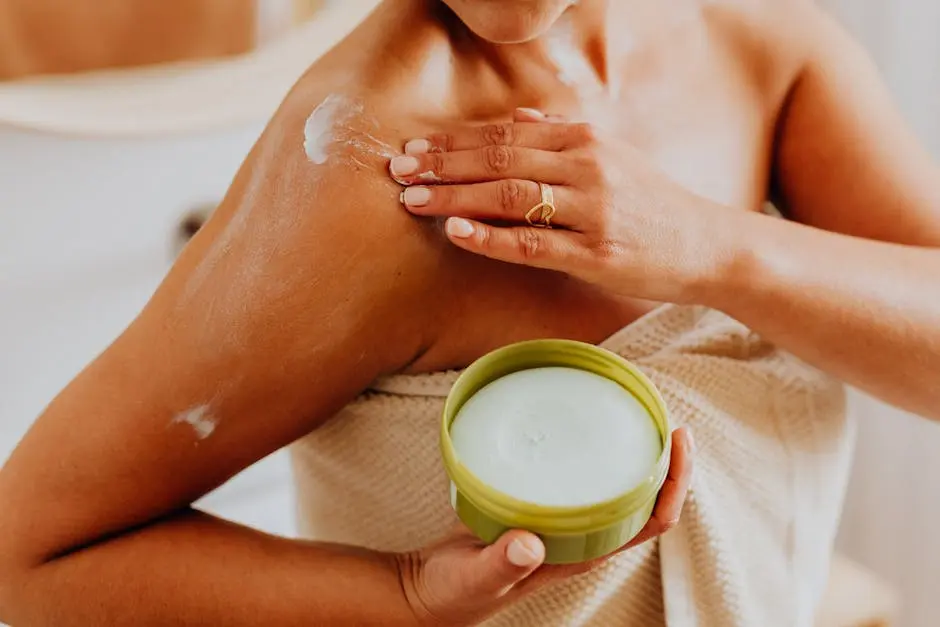Menopause brings a host of changes, both internal and external. One of the most noticeable changes happens to your skin, often impacting its health and appearance. Understanding how menopause hormones affect your skin and learning how to manage these changes will help you maintain a healthy glow during this transformative phase.
1. The Impact of Collagen Loss
As estrogen levels decrease during menopause, the skin produces less collagen, leading to reduced elasticity. This often results in skin sagging and the development of fine lines and wrinkles. While this change is inevitable, it’s essential to incorporate products that promote collagen production into your routine. Look for serums or creams that include ingredients like vitamin C or hyaluronic acid, which are known to stimulate collagen synthesis.
Moreover, adopting healthier lifestyle choices can also make a significant difference. For instance, maintaining a balanced diet rich in antioxidants can support skin health by protecting collagen. Daily application of sunscreen is crucial as UV rays can further degrade collagen, accelerating skin aging (source). Together, these measures help to counteract the [] and maintain skin firmness.
2. Dealing with Dryness and Thinning
Menopause can make your skin more prone to dryness and thinning due to a slower production of natural oils. Hydration becomes key in maintaining supple and healthy skin. A rich, moisturizing cream that contains ingredients like ceramides or glycerin can lock in moisture and support the skin barrier. Additionally, avoiding long, hot showers and using a humidifier at home can prevent excessive moisture loss.
Beyond skincare products, internal hydration is equally important. Increasing water intake and consuming foods high in omega-3 fatty acids can enhance skin hydration from the inside out. These dietary adjustments, combined with a suitable skincare regimen, work synergistically to combat menopausal dryness efficiently.
3. The Onset of Adult Acne
Hormonal fluctuations can trigger adult acne, making cleansing and proper skin care routines crucial. Choosing the right products can help manage breakouts and maintain clear skin. Specifically, look for non-comedogenic, oil-free options to avoid clogging pores. Moreover, over-the-counter products containing salicylic acid or benzoyl peroxide can be effective in treating and preventing acne.
It’s also important to note the role of stress, which can exacerbate acne issues during menopause. Incorporating relaxation techniques such as yoga or meditation not only helps your mental well-being but can also positively impact your skin condition. A holistic approach that combines suitable products and stress management can significantly reduce acne flare-ups during menopause.
4. Increased Sensitivity
Sensitivity can heighten during menopause, making the skin more reactive to environmental factors. Gentle skincare products ensure your skin’s protection and comfort. Opt for hypoallergenic and fragrance-free products to minimize irritation and inflammation. It’s equally vital to perform patch tests when incorporating new products into your regimen to preempt any adverse reactions.
5. Combating Hyperpigmentation
Hormonal changes can lead to uneven skin tone and dark spots. Using products with brightening agents can help even out pigmentation issues. Incorporating ingredients such as vitamin C, niacinamide, and alpha arbutin can work wonders in diminishing dark spots. Additionally, consistent use of broad-spectrum sunscreen is key to preventing further pigmentation.
6. Maintaining Skin Firmness
Loss of firmness is a common complaint, requiring an anti-aging regimen that includes peptides and retinoids to help restore skin’s youthful structure. Integrating a nighttime retinoid cream can enhance cell turnover, promoting firmer skin. Similarly, peptides can boost collagen and elastin production, which is essential for maintaining elasticity.
Beyond skincare, facial exercises can also aid in firming the skin by strengthening underlying muscles. The practice of consistent facial massages coupled with a targeted skincare routine creates a forward path to achieving and sustaining firmer skin during menopause.
7. Understanding Flare-ups of Rosacea
Rosacea can worsen during menopause, causing redness and irritation. Careful selection of skin products can reduce flare-ups and soothe the skin. Consider formulations containing calming ingredients like aloe vera or chamomile. Such products help reduce inflammation and support the skin’s natural barrier function.
Moreover, certain lifestyle changes can significantly mitigate rosacea symptoms. Avoiding dietary triggers like alcohol and spicy foods, alongside reducing stress, can lead to fewer flare-ups. Understanding your skin’s triggers allows for a personalized approach to managing and reducing rosacea during menopause.
8. Boosting Moisture Retention
Incorporating hyaluronic acid and ceramides into your skincare routine enhances moisture retention and helps maintain skin’s plumpness and softness. These ingredients work by drawing moisture into the skin and strengthening the skin barrier, respectively. Regular application can dramatically improve the skin’s texture, leaving it looking dewy and replenished.
Additionally, minor tweaks in dietary habits can boost your skin’s natural moisture. Consuming hydrating foods like cucumbers or watermelon, and supplementing your diet with omega-3 fatty acids help sustain moisture levels, with skin gleaming from the radiant benefits. A combined approach of external care and internal nourishment can effectively retain moisture.

